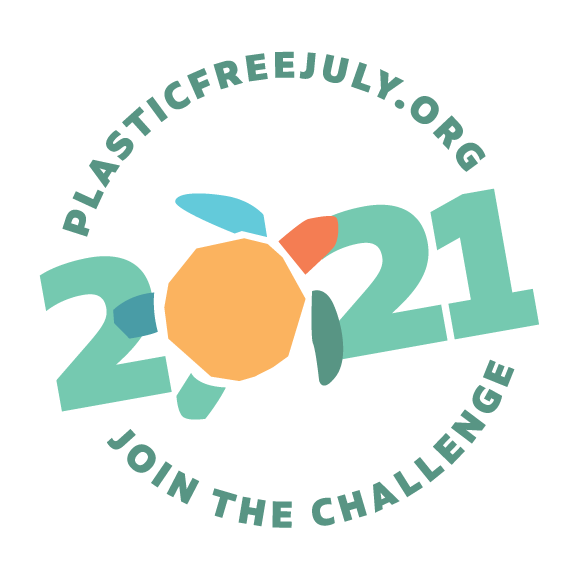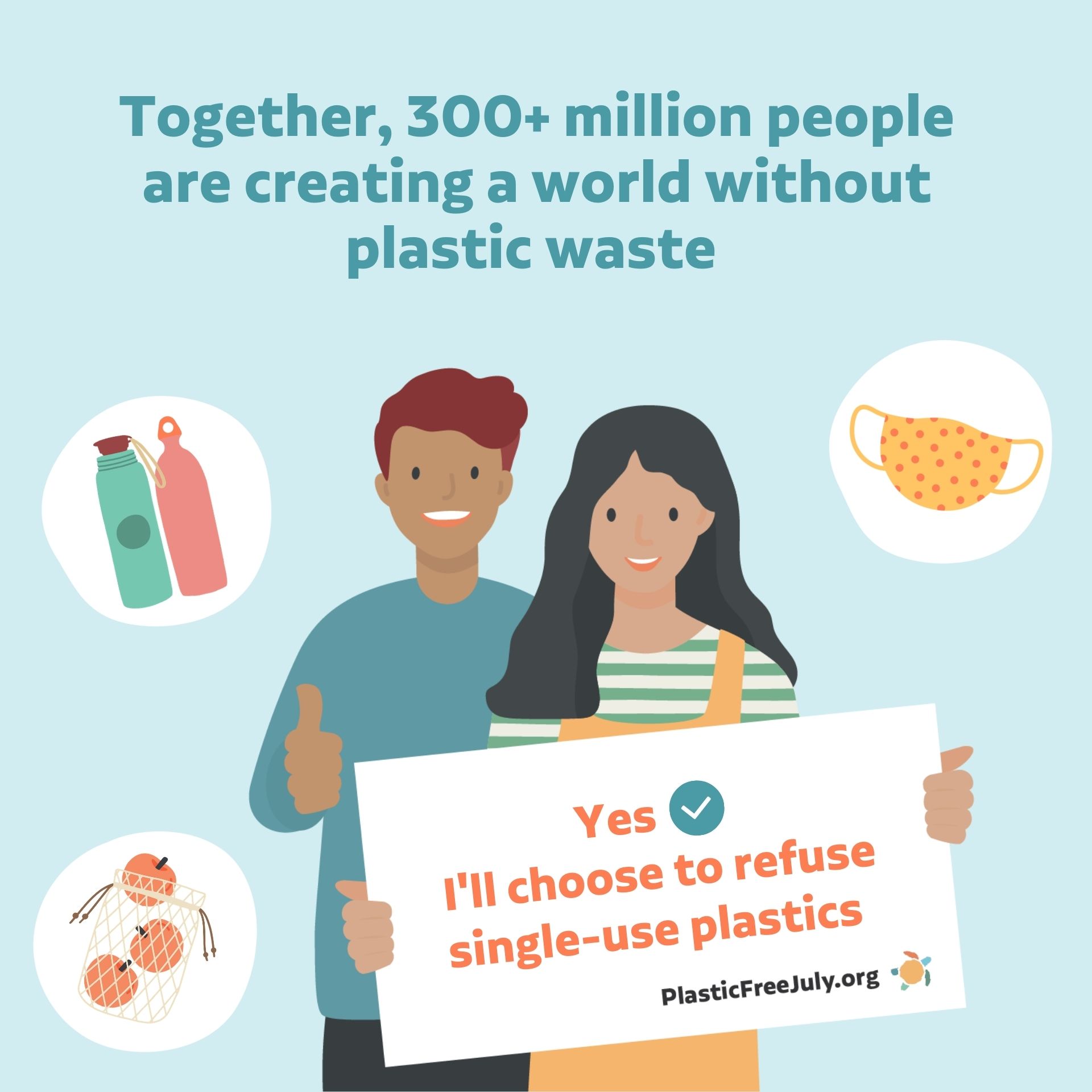Plastic Free July – What it is and How to Get Involved
The start of July marks the beginning of ‘Plastic Free July’, a month-long challenge to reduce the amount of plastic waste created and encourage environmentally friendly practices.
North Somerset Recycling and Waste are encouraging local residents to take part in the Plastic Free July challenge and cut down on plastic products. In this guide to Plastic Free July, we explain what it is and how to get involved, as well as provide top tips for reducing plastic waste.

What is Plastic Free July?
Plastic Free July is a global initiative that takes place over the 31 days of July. Throughout the month, participants challenge themselves to reduce the amount of plastic waste they produce using various eco-friendly methods, materials, and practices. The aim is to begin better practices regarding plastic, especially single-use plastic, in July and develop more eco-friendly habits once the challenge month has elapsed.
Participation in the challenge is free and entirely led by participants themselves. It is less so a rigid challenge, and more of a general goal to actively reduce the amount of plastic waste one produces. Any contribution to the campaign, no matter how small, is a step towards a cleaner, safer, and healthier planet.
The global campaign is now in its 11th year, having been successful for over a decade in encouraging citizens across the world to cut down on waste. The collective participation of hundreds of thousands of people across the world results in tangible differences to plastic pollution.
To find out more about the Plastic Free July challenge, visit the Plastic Free July website, the Plastic Free July Twitter page, or the Plastic Free July Facebook page.

How to Get Involved in Plastic Free July
Sign up to the Plastic Free July challenge to receive weekly emails, share plastic free ideas, and join 326 million other participants!
Involvement can vary according to participants as it is a personal challenge, part of a global effort. The main focus of Plastic Free July is on refusing single-use plastic, so most participants actively work towards reducing single-use plastic consumption. This may start as choosing one single-use plastic type to avoid, like water bottles, then quickly develop into more.
View the #PlasticFreeJuly hashtag or visit the Plastic Free Website ideas page to see how others are taking part in the challenge.
In Nailsea, Simply Green is a plastic-free shop with the mission of ‘zero waste’. Here, residents can find products and use shopping methods that reduce the creation of waste. Visit in-store or view the Simply Green Zero Waste Facebook page for more Plastic Free July ideas.
Ways to Reduce Plastic Waste
Here are some ideas to start you off on your Plastic Free July challenge.
Use Reusable Cups
A simple but effective way to reduce your plastic consumption is to use a reusable cup! Whether you fill a cup with coffee or use a bottle again and again, refilling one container is far more sustainable than getting a new one with each drink and creating unnecessary waste each time.
Buy Unpackaged Products
Often, supermarkets use a lot of plastic for packaging. Local greengrocers, like S&R Burchills, sell produce without unnecessary packaging, and instead encourage customers to use recyclable alternatives. Simply Green Zero Waste also sells products without plastic packaging.
Use Reusable Bags
Although shops charge for plastic bags, they are still purchased regularly. Plastic bags take hundreds of years to decompose in landfill and are therefore unsustainable solutions. Tote bags, or other reusable bags, are great alternatives when shopping, carrying goods, and more.
Plan Meals and Buy in Bulk
Heading to the shops with a clear plan of what food you will buy and how much you need can help reduce the amount of plastic packaging used. Simply fill your own container with a bulk amount of grains and food stuffs you will use for the week instead of buying individually packaged items. Planning meals ahead also helps prevent food waste – win win!
Buy Milk in Reusable Glass Bottles
Milk can be delivered to and collected from your home in glass bottles. This reusing scheme produces no plastic waste, compared to plastic bottles from the supermarket.
Up-cycle Plastic Waste
When plastic waste is created, instead of sending it to landfill and possibly polluting the planet, you can up-cycle the waste. Examples include using milk bottle tops for arts and crafts, creating planters from used drinks bottles, or making baskets from finished household product containers.
